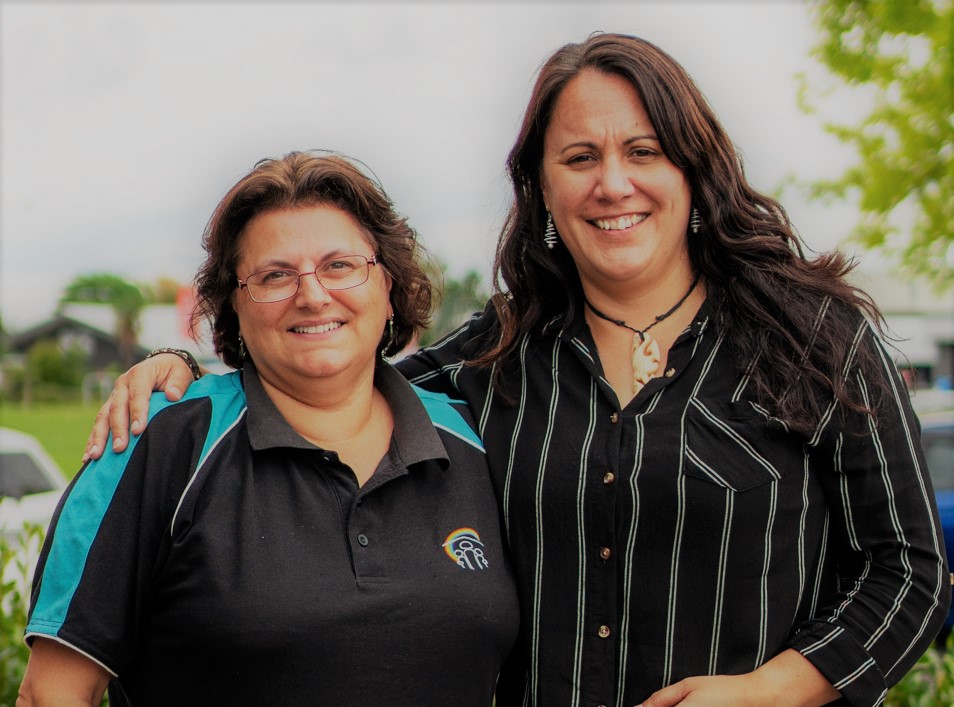
In a world where women are still struggling to meet the same level of financial wellbeing as men, one woman from Paeroa has been able to exceed these expectations for her whānau.
Paeroa Budgeting Services – part of the Paeroa Community Support Trust (PCST) – have been walking alongside a woman to support her towards her family’s goal to own their own home.
This is timely as International Women’s Day was celebrated in early March – with experts reporting woman still have a lower level of financial wellbeing than men. However, statistics show women are often better at the day-to-day budgeting.
The woman says she approached the service as she needed to try to reduce spending where possible and increase payments in some areas to pay off debt more quickly.
“I wanted to create savings for repairs, maintenance, and some purchases rather than using long term financing options and try to change the way we think about money. I wanted to be able to make purchases using cash,” she says.
“Not really knowing where the money was going meant we were not really paying off debt efficiently and quickly – in turn this affected our ability to set goals and save for house repairs and saving in general.”
“We couldn’t visualise an end to our debt – there wasn’t a timeline. It just seemed like we were going to be doing this for years to come and the idea of owning a home was drifting further away.”
The woman worked with the financial mentor to create a budget and debt schedule to clarify her financial position and look at options to reduce debt and potentially increase savings.
“My expectations were met and some! Thank you, Nicola – I found this programme very worthwhile; it gave me the confidence to know where my money is going each week after payday and helped me focus on the bills that needed my attention, particularly the interest-bearing credit cards and vehicle finance and being able to make additional payments to help curb my interest from piling up and rein in my overall spending habits,” she says.
Once each debt was paid off, they used that money to go towards a different debt. Then they were able to make cash purchases for things they needed including repairs on the whānau home.
Now, her and her partner are well on the way to realising their dream of home ownership.
“It’s a feeling of accomplishment knowing we did this on our own with our own money and planning. We are making memories as a whānau in our family home and achieving financial goals at the same time,” she says.
“Home ownership is more of a reality now knowing what we know – we can see how capable we are with managing our finances.”
And she is full of praise for the budgeting team including financial mentor Nicola Poutu (Nic) and team lead Dorothy Otto (pictured above).
“The services you provided and research you did has helped me to get to where I am today. You took the time to listen to my goals and concerns and in turn were able to customise a service, give me the tools I needed for this to be so successful and I’m so grateful for this,” she says.
“Your approach played a big part also, I wanted to see what my options were and talking about money is a bit awkward at times, but it was great to know you were genuinely wanting to help me reach my goals. This made me feel much more comfortable about opening up and accepting some things I needed to do to help achieve my goals.”
Nic and Dorothy say this is one of many cases where they have seen women, in their region, take control of the personal finances – although this situation was a particular highlight. This is very empowering to be a part of and they encourage other women to do the same.
However, they are both very aware of the many challenges that women face taking this financial control.
In their experience women often have less opportunity to upskill than men. Often due to women carrying more of the weight of the whānau and household responsibilities, which may hinder their ability to attend any upskilling opportunities. Travel can be another barrier which adds to this.
Women may not have ever had to manage their finances before. This may be due to a few different reasons including cultural matters, abusive relationships, or simply the other partner in the relationship having always done it.
Changes in relationships or other life-changing events can throw things into disarray. Often, women are the ones that have the children in tow and finances may be down the list of things they need to deal with or something they never had to worry about before.
Some women are looking after extended whānau – whether it is elderly parents or having adult children move in with them or grandparents looking after grandchildren.
One of the trends noticed is that parents have also been known to take on finance for their adult children, even if they are close to retirement age, for necessities like vehicles or mobile phones.
“In the process of helping their family they don’t always realise what they have agreed to when they’re dealing with creditors or finance companies. And that can happen numerous times, not just once… that’s a real detriment to their financial situation,” say Dorothy.
“If they are a woman living on their own and their adult children are moving back that seems to make it slightly worse because they tend to pull on those heart strings, and the mother would normally try and help them out – it adds to all of that pressure,” adds Nic.
“Parents are just trying to help them out as it is really tough for a lot of families,” Dorothy says.
COVID-19 has also had a massive impact in their community, with more women being employed in industries like hospitality, cleaning, retail and as carers which have been hit with job losses or reduced hours.
Nic says the pandemic is adding a lot of extra pressure with children at home or home schooling, as this tends to fall onto women. This can be on top of existing pressures, like their own careers and managing the household, particularly if they are a single parent.
“They’re trying to have it all, but nine times out of ten that means they have to do it all.” says Nic.
“They’re taking on a lot of that pressure themselves which not only is going to affect them financially, but as we know their whole wellbeing.”
Nic says there are many tips and tools they are able to give clients to help them take control of their finances, even if they only have one session with the service.
She stresses there is no obligation to keep coming to the service, and they provide free, confidential, and non-judgemental support.
“We’re sitting here as strong wāhine ready to help other wāhine to build their financial capability,” says Nic.
Goal setting and taking ownership are some of the ways the service will empower women with their finances.
“While a woman might go to somebody in their own whānau or friends to talk about finances, I’ve had clients say it’s different coming into the service because we are not directly involved and offer an impartial view.” says Dorothy.
It is also important to be aware of ever-increasing scams circulating, including romance scams which are becoming more common among the vulnerable women they support, particularly for women with mental health issues.
“How can they take control of their situation? It might even just be something simple like meal planning, and they’ve perhaps never tried that before. It’s keeping things simple and breaking things down into bite size chunks,” says Dorothy.
Keeping a spending diary, using online tools like those available on the Sorted website (which includes access to The Little Black Book of Scams) and keeping and sticking to a budget can help achieve their goals.
“Each women’s financial situation is unique and what works for one may not work for another. Keep learning, upskilling, asking questions and don’t forget to reach out. Everyone needs support at some stage during their life,” says Nic.
Why the trend?
Many of the trends in the Paeroa community are being replicated across Aotearoa.
 Good Shepherd NZ’s social inclusion manager Nicola Eccleton (pictured left) says there are lots of reasons why women have a different experience with money – they earn less than men, even when accounting for part-time or flexible work.
Good Shepherd NZ’s social inclusion manager Nicola Eccleton (pictured left) says there are lots of reasons why women have a different experience with money – they earn less than men, even when accounting for part-time or flexible work.
Good Shepherd NZ is a charitable organisation that was established to address the critical, contemporary issues facing women, girls and whānau.
When couples do have families, it is still the woman that is more likely to sacrifice career goals to care for dependents, which then impacts their future earning potential.
“Once upon a time women were seen as being less capable with money than men,” says Nicola.
“Now we know that women are just as financially capable as men and they are awesome household budgeters, but they don’t always back themselves to make important financial decisions.”
Women are still much more likely to be the primary caregiver for children or other dependents, during and after a relationship. So, these women are making financial decisions that are different from people who do not have this responsibility.
“If you think about when you are a young student without much income, you can live in a flat with others to share costs, you can bus instead of owning a car,” explains Nicola.
“If you change that to being on a low income and having three children, it’s not feasible to be in a flatting situation and if the kids’ school (or schools) is not on the way to your work, even taking the bus is often not a realistic option.
“And you are restricted to employment opportunities that fit around school and childcare hours. In lots of situations, you just have fewer options to choose from.”
Nicola believes women are probably going to be better at talking about challenges and reaching out for help when they need it.
“There are some great supports out there in terms of financial mentors, financial advisors, coaches – but don’t underestimate the power of talking with other women you trust – your sisters or your friends,” she says.
“The best ideas about how to get better with our money often come from our peers.”
Te Ara Ahunga Ora Retirement Commission research lead Dr Jo Gamble (pictured right) agrees that women, in general, experience a raft of inequities across the personal finance spectrum which really impact on their overall financial wellbeing.

Women are one of the three priority groups the commission has identified in the National Strategy for Financial Capability.
Jo says sadly, not too much has changed over the years, in that, in general, women are worse off financially than their male counterparts.
Recent surveys show women in general feel less financially comfortable, have lower household incomes, and lower homeownership than average.
Women not only earn less on average, but they are also more likely to be a stay-at home parent, so they have to take more time out from work.
Women are often worse off than men after relationship breakdowns or other life shocks, while their use of mechanisms like buy now, pay later is twice that of men.
“The odds seem to be a stacked against women, particularly for the Māori and Pacific participants where gender inequity seems even more substantial,” says Jo.
As such, women are disadvantaged in their ability to add to their own savings and grow their money to supplement NZ Superannuation income. This has a negative impact for women’s quality of life in their later years.
“Not surprisingly, women feel less prepared for retirement and give lower scores for a number of aspects of financial wellbeing.
“What I did find interesting is that women actually play a more significant role in day-to-day money management, and they really work to make every penny count,” says Jo.
“Women continue to say they are less confident at investing, and fewer women than men seek financial advice.
“However, we have seen some positive trends in women generally having very good attitudes to spending, saving and borrowing. Women scored higher in long-term thinking and impulsivity control compared to men. Women are also more likely than men to plan their budget exactly and to keep to it.”
Jo says there are ways women can take control of their personal finances, but if it were easy to do, we would not see such inequities.
“But you’ve got to start somewhere – we know everyone has a set of different financial circumstances and challenges, but women can benefit enormously from engaging with their finances,” she says.
“By building up women’s financial independence so they become more financially secure, this will enhance women’s overall financial wellbeing.”
The client from Paeroa Budgeting Services has a few words to say to women struggling with their finances following her experience.
“Don’t feel whakamā about approaching a budgeting service. There is no shame in getting ahead and setting goals that will in turn help your wellbeing (mental health and financial position included) and those of your whānau moving forward,” she says.
“The support I received was refreshing, I felt uplifted and was treated with kindness and patience. I was listened to and encouraged. I felt comfortable sharing my goals and aspirations and was happily achieving these in such a short period of time.
“As mothers, daughters, wives, partners, sisters and nieces we want what’s best for our whānau and what better way to secure their future and yours than by making sure your finances are in order and encouraging them to do the same. You owe it to yourself. Karawhuia!”
If you or anybody you know needs more support with personal finance, reach out to Paeroa Community Support Trust, Good Shepherd NZ, Sorted or MoneyTalks.
